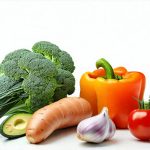Digestion is often an overlooked aspect of overall health, yet it profoundly impacts our energy levels, nutrient absorption, and even mental well-being. Many factors contribute to healthy digestion, including a balanced diet rich in fiber, regular physical activity, and – crucially – adequate hydration. Often, digestive discomfort like constipation or bloating isn’t due to what we are eating, but rather what we aren’t: enough water. This seemingly simple element is the engine that keeps our digestive system moving smoothly, lubricating the pathways for food to travel through and aiding in the breakdown of nutrients. Ignoring hydration can lead to a sluggish digestive system, impacting everything from nutrient absorption to waste elimination, and ultimately contributing to feelings of discomfort and unwellness.
The connection between water intake and digestive regularity is multifaceted. Water isn’t just about preventing constipation; it’s about supporting the entire digestive process. It helps dissolve fiber, making it easier for our bodies to process and move along. Without sufficient water, fiber can actually contribute to constipation by forming a bulky mass that’s difficult to pass. Furthermore, water is essential for maintaining the proper acidity levels in the stomach, aiding in food breakdown. Proper hydration also supports the healthy functioning of the intestines, allowing them to efficiently absorb nutrients and eliminate waste. It’s truly a foundational element often underestimated in our pursuit of optimal health.
The Science Behind Hydration & Digestion
The digestive system is remarkably complex, relying on a symphony of processes working in harmony. Water plays an integral role in nearly every stage. Think about the journey food takes: from being chewed and mixed with saliva (which is largely water), to traveling down the esophagus, into the stomach where it’s broken down by acids and enzymes (again needing water for optimal function), then through the small intestine for nutrient absorption, and finally into the large intestine for waste elimination. Each step relies on adequate hydration. Without enough water, this process becomes inefficient and prone to disruption.
Specifically, the large intestine absorbs water from undigested food, solidifying waste for elimination. If you’re dehydrated, your body will pull more water from the colon, resulting in harder stools that are difficult to pass – leading to constipation. Conversely, sufficient water intake ensures softer, easier-to-eliminate stool. Beyond the mechanics of bowel movements, hydration impacts gut motility – the movement of food through the digestive tract. Proper motility prevents stagnation and allows for efficient digestion. Dehydration slows down this process, potentially leading to bloating, gas, and discomfort.
The amount of water needed varies depending on individual factors like activity level, climate, diet, and overall health. However, a general guideline is around eight 8-ounce glasses (approximately 2 liters) per day, though some people may require more. Listening to your body’s thirst cues is essential, but it’s also important to proactively incorporate water into your routine rather than waiting until you feel thirsty – as thirst can sometimes be a late indicator of dehydration.
Strategies for Increasing Water Intake
Many people struggle with drinking enough water, often finding it bland or simply forgetting to do so throughout the day. Thankfully, there are numerous strategies to make hydration more enjoyable and consistent. It’s about building habits and making small changes that add up over time.
- Start your day with a glass of water: This immediately rehydrates you after sleep and sets a positive tone for the day. Consider adding a slice of lemon or cucumber for flavor.
- Carry a reusable water bottle: Having readily available water encourages frequent sipping throughout the day. Choose a bottle you enjoy using!
- Set reminders: Use your phone or a hydration app to remind yourself to drink water at regular intervals.
- Infuse your water: Add slices of fruit (berries, citrus), herbs (mint, basil), or vegetables (cucumber) to create naturally flavored water that’s more appealing.
Another helpful approach is to associate water intake with existing habits. For example, drink a glass of water before each meal, after every bathroom break, or during commercial breaks while watching TV. Consistency is key. Don’t try to drastically increase your water intake overnight; gradually build up your consumption to avoid overwhelming your system.
Making Water More Appealing: Beyond Plain Water
Plain water isn’t everyone’s cup of tea (pun intended!). Fortunately, there are many ways to make hydration more interesting and enjoyable without resorting to sugary drinks. Focusing on naturally flavored options is the best approach for overall health. Herbal teas – unsweetened, of course – can contribute to your daily fluid intake while offering additional benefits like relaxation or digestive support.
- Sparkling water: Provides a bubbly alternative that many find refreshing.
- Coconut water: Naturally hydrating and contains electrolytes. Be mindful of the natural sugars present.
- Fruit-infused water (as mentioned above): Experiment with different combinations to find your favorites.
- Diluted fruit juice: A small amount of 100% fruit juice diluted in water can add flavor, but use sparingly due to sugar content.
It’s important to avoid relying on sugary sodas or sweetened beverages for hydration. These offer little nutritional value and can actually hinder digestive health. Prioritize natural sources of hydration whenever possible. Also, be mindful of caffeine intake, as caffeinated beverages can have a diuretic effect, potentially leading to dehydration if not balanced with sufficient water consumption.
Food Sources of Hydration: Don’t Forget Your Diet!
While drinking water is essential, it’s important to remember that we also obtain hydration from the foods we eat. Many fruits and vegetables have high water content and can significantly contribute to your daily fluid intake. Incorporating these into your diet not only boosts hydration but also provides valuable vitamins, minerals, and fiber – all of which support digestive health.
- Watermelon: As the name suggests, incredibly hydrating (around 92% water).
- Cucumbers: Another excellent source of water (around 96%).
- Strawberries: High in water and antioxidants.
- Celery: Surprisingly high water content and a good source of fiber.
- Lettuce: Especially romaine lettuce, is very hydrating.
Soups and smoothies can also be great ways to increase your fluid intake. Opt for broth-based soups rather than creamy ones, as cream can slow down digestion. Smoothies should ideally include fruits, vegetables, and water or unsweetened almond milk. Remember that even though these foods contribute to hydration, drinking plain water is still crucial for optimal digestive function. A balanced approach – combining adequate fluid intake with hydrating foods – is the most effective strategy.


















